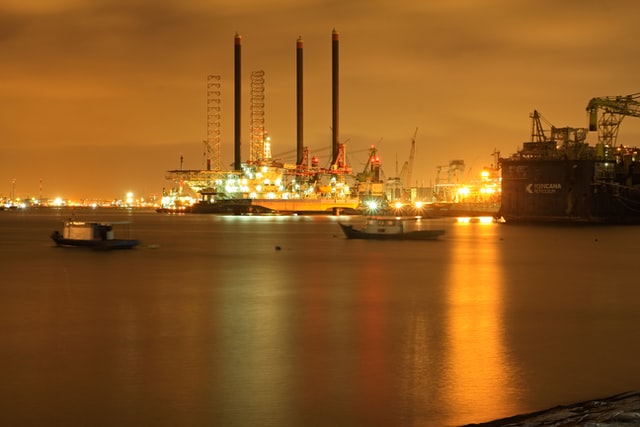Oil And Gas In 2025: Political Ambitions Vs Geological Realities

Photo by Timothy Newman on Unsplash
As President Trump is set to take office over the next four years with promises of expanded oil drilling and lower energy prices, Adam Rozencwajg, managing partner at Goehring and Rozencwajg, says that political initiatives to boost oil drilling will be limited by geological issues with 2024 likely to prove as the year of peak oil production. Rising electricity demand from AI and data centers complicates matters, with natural gas facing both declining production and rising demand.
The Limits of Political Power in Energy Markets
Despite “drill baby drill” campaign promises to dramatically expand oil drilling and reduce energy prices, Rozencwajg argues that such initiatives are likely to face significant geological headwinds.
"We don't think it's going to be all that effective... What it really has to do with is geology. And unfortunately, we find ourselves in a situation where the main growth drivers of U.S. production growth—that is, of course, the shales—are now starting to suffer some pretty serious depletion problems. And that's not something that politics can really address."
The Historical Context: Learning from Past Attempts
Rozencwajg points to a telling historical parallel: President Nixon's Project Independence in the early 1970s. Following the first Arab oil embargo, Nixon launched an ambitious initiative to achieve energy independence through deregulation, higher prices to incentivize drilling, and easier permitting processes. Despite a threefold increase in drilling activity over the next decade, U.S. production actually declined by 2 million barrels per day by 1982.
Source: EIA, annotations by Financial Sense
This historical example illustrates what Rozencwajg calls "the depletion paradox" – a phenomenon where increased drilling activity cannot overcome the natural decline in productivity of aging oil fields.
"At a certain point, even if you throw the kitchen sink at it, the base declines become too great to be able to overcome," he explains.
The Shale Revolution: Understanding the Real Drivers
The recent success of U.S. shale production, Rozencwajg argues, was largely misunderstood. From 2016 to 2019, productivity per well appeared to surge, leading many to believe the industry had mastered shale extraction. However, this increase was primarily due to "high-grading" - the practice of focusing drilling in the most productive areas rather than genuine technological improvements.
"Most people think that it surged because the industry got really good at drilling shale wells," Rozencwajg notes. "But really what was happening is that the industry got really good at finding where their best wells were, and they went in and they focused their drilling activity in the core parts of their plays."
The Limits of Federal Land Permitting
Another key question is whether opening up new federal lands for drilling could offset declining shale productivity. Rozencwajg was skeptical, citing the lack of untapped, high-quality shale plays on federal land.
“The only material lever the administration could pull would be the Alaska National Wildlife Refuge (ANWR),” he explained. While ANWR holds significant hydrocarbon reserves, it is not near-cycle shale production and would require years of development. Moreover, environmental concerns make its exploitation politically challenging.
Beyond ANWR, Rozencwajg argued that permitting new acreage is unlikely to have a meaningful impact. “There’s not a rip-roaring, good new shale sitting on federal lands that could replace the depletion we expect to see from the Permian,” he said.
The Coming Peak: 2024 and Beyond
Based on various analytical techniques, including both traditional Hubbert linearizations and cutting-edge artificial intelligence, Rozencwajg's firm has been predicting since 2019 that U.S. shale production would peak in 2024. Early indicators suggest this prediction is proving accurate, with production growth slowing steadily over the past few years and showing its first sustained decline in the face of healthy oil prices.
The Energy Transition and Growing Demand
While production faces constraints, demand continues to grow, particularly in the electricity sector. The explosion of artificial intelligence and data centers is creating unprecedented power requirements. As Rozencwajg explains, "We are starting to see now, for the first time in decades, a fairly material uplift in electricity demand in the United States. That is all coming from data centers."
This surge in demand coincides with what Rozencwajg identifies as the "Jevons Paradox" in AI development - where improvements in energy efficiency lead to increased total energy consumption due to expanded adoption and more ambitious applications.
Natural Gas: The Bridge Fuel
Natural gas, often cited as the crucial bridge fuel for the energy transition, faces its own set of challenges. While the United States currently enjoys a significant competitive advantage with natural gas prices at $3 per Mcf compared to $15 elsewhere in the world, production is showing signs of decline for the first time in 20 years.
This creates a precarious situation as the country simultaneously adds export capacity and faces growing domestic demand, particularly from data centers and AI applications. "It's going to become very, very tricky," Rozencwajg warns, "because we're adding a tremendous amount of export capacity for gas, [but] we're adding a tremendous amount of domestic demand for gas" while production declines.
More By This Author:
From Petrodollar To Commodity Power: The Shift In Global Economic ControlRevisiting The Mandibles: Lionel Shriver's Cautionary Tale Of America
Supercharging America: The Five Trends Driving Explosive Growth In Electricity Demand
Advisory services offered through Financial Sense® Advisors, Inc., a registered investment adviser. Securities offered through Financial Sense® Securities, Inc., Member FINRA/SIPC. DBA ...
more



